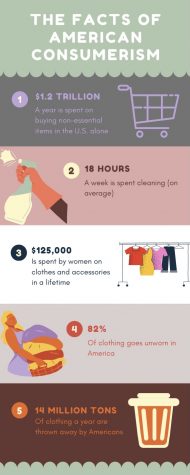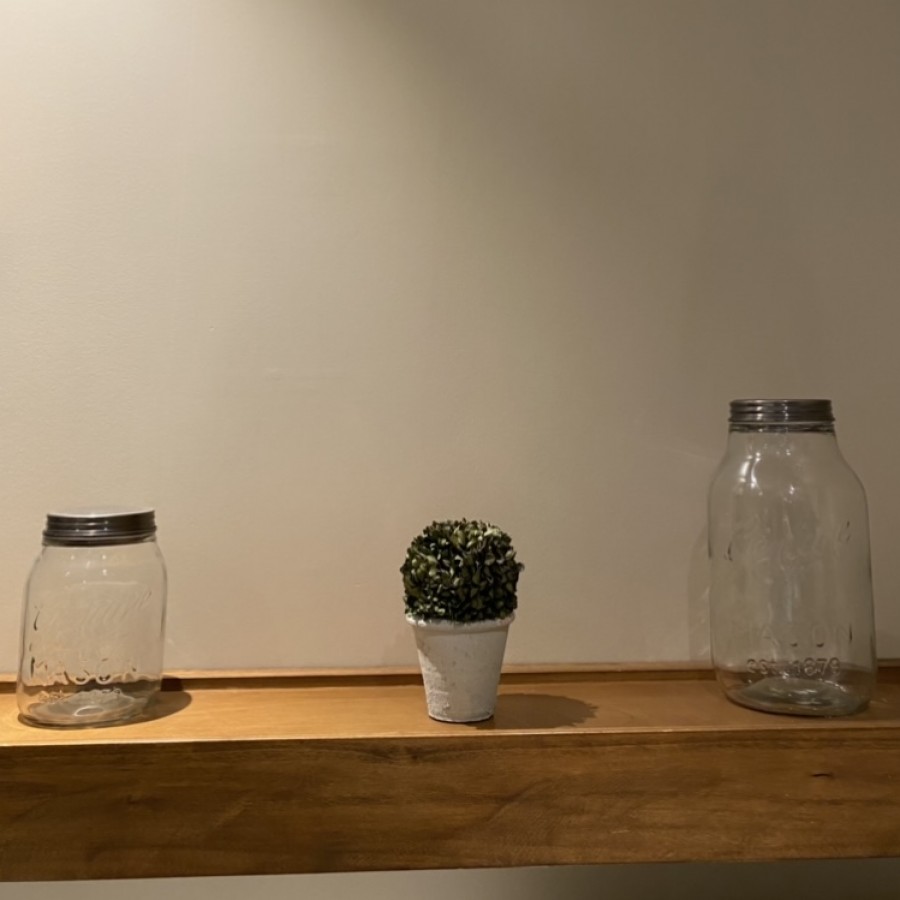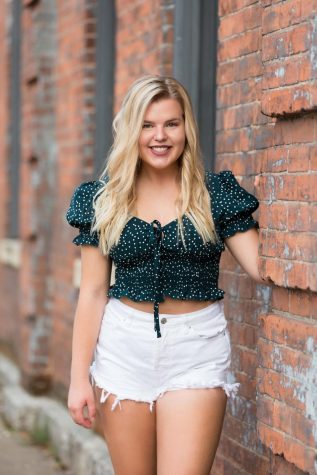“Love people, use things. The opposite never works,” stated Joshua Fields Millburn, owner and several books, dedicated to helping individuals find meaning in life through decluttering.
Recently, American consumerism has taken over the nation. People are beginning to recognize the harmfulness of hoarding,turning to a more minimalist lifestyle.
Being a minimalist is a state of mind, and not a set of rules. Minimalists typically own things that have much higher value than just taking up space on the shelf. Furthermore, minimalism is characterized by intentionality and getting rid of all the possible distractions and coincidental purchases.
The minimalist lifestyle is not a new concept. But its implementation in everyday life only recently began to grow in popularity. In the United States, more people are cutting their wardrobe supply, donating possessions and moving into tiny homes to reduce unnecessary extra space, costs and to avoid catalysts for clutter. 
Americans have amassed astronomical amounts of clutter. Blake Smith is the CEO and Co-Founder of Caldwell, a startup helping American’s declutter through creating timeless wardrobes. “In 1930, the average woman only had 36 pieces of clothes in her closet. Today, the average consumer has 120 items of clothing, but 80% go unworn,” Smith expressed. His company has helped a multitude of Americans unfetter from materialism.
These timeless or “capsule” wardrobes, as Smith’s company presents, have garnered immense popularity. Several minimalists have utilized the idea of owning merely a small number of items chosen to be interchangeable, to match one’scolorings, personalities and lifestyles.
Minimalist Kristen Laurence explained how minimalism can facilitate order and peace, as well as a healthy detachment from things. “Having a few outfits each that we rotate frequently saves me the burden of extra laundry and clothing spilling out of drawers, but there are times a child, or her mom, wants to wear her jeans but can’t because they’re her only pair and in the hamper,” she noted. Minimalism has worked well for her family, but not without some sacrifice.
Laurence further elaborated on her life of minimalist ideals. “So while I used to tout only the benefits of minimalism I now strive for a balanced approach…a home perhaps not cluttered but full of things dear to the heart or practical for living harmoniously with those we love, and which are ordered to a good life,” she commented. Laurance also communicated that her home can be readily tidied due to its simplicity.
Minimalism provides many other benefits along with an easier cleaning job, such as reduced stress, greater freedom, increased productivity, and less damage done to the environment.
UK Blogger Madeleine Abbott documents her minimalist lifestyle on social media. A recent Instagram post reflected her reason for taking on this way of life. She explained that she did not realize the true cost of the fast fashion industry: the poor working conditions, negative impact of the materials on the environment and colossal amount of waste being produced by the industry.
Marie Kondo’s book, “The Life-Changing Magic of Tidying Up: The Japanese Art of Decluttering and Organizing,” has additionally brought widespread attention to the movement. The book has prompted many to rid themselves of meaningless possessions, while also reshaping their organizational methods.
Teacher Amy Brown has practiced Kondo’s method in her home. “I wanted to try it because it was different. Her method focuses on organizing a category rather than a space. This helps you acquire a really good understanding of what you actually own altogether,” she indicated. Brown vocalized that the goal is to keep only what “sparks joy” or is useful for one.
Brown commented on the universality of the method. “The nice thing about the method is that it can suit everyone in terms of preference for how much stuff you like to have around you….You don’t have to have the intention of being a minimalist, but [through the process] one might discover that they actually prefer minimalism,” she stated.
Documentaries such as Netflix’s “Minimalism: A Documentary About the Important Things,” directed by minimalist Matt D’Avella, presents the righteousness of “less is more” and asks the audience to consider what truly brings them gratification in life.
The increasing popularity of minimalism exhibited in the mainstream has posed a big threat to retail. Millennials are not as invested in shopping. They have a unique set of values regarding how they choose to spend their money. They grew up during the recession, entered a struggling job market and must now pay off whopping amounts of student debt.
With smaller wallets, consumer intentionality and materialistic sustainability has peaked interest amongst many. Millennials tend to favor more ethical and environmentally friendly products.
Moreover, it has been proven that millennials would rather spend their earnings on memories instead of products. According to a survey from Harris Poll and Eventbrite, “Seventy-eight percent of millennials—compared to 59% of baby boomers—would rather pay for an experience than material goods”.
Smith believes that minimalism is not a temporary phase. “A lot of people think that this is a trend and they’re wrong. This is a generational shift based on values, and so, it’s going to take a generation for it to shift again,” he stated. “Aesthetic trends come and go, but value-based trends, they have staying power. I think we’ve got another 20 years of growth.”
The chaste life of minimalism involves being friendlier to the environment, increased financial security, self-sufficiency and new adventure. All of these values have struck a chord with millennials and have helped accumulate adoration for the movement.










